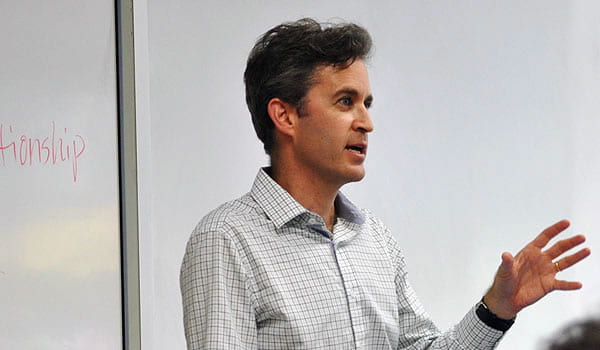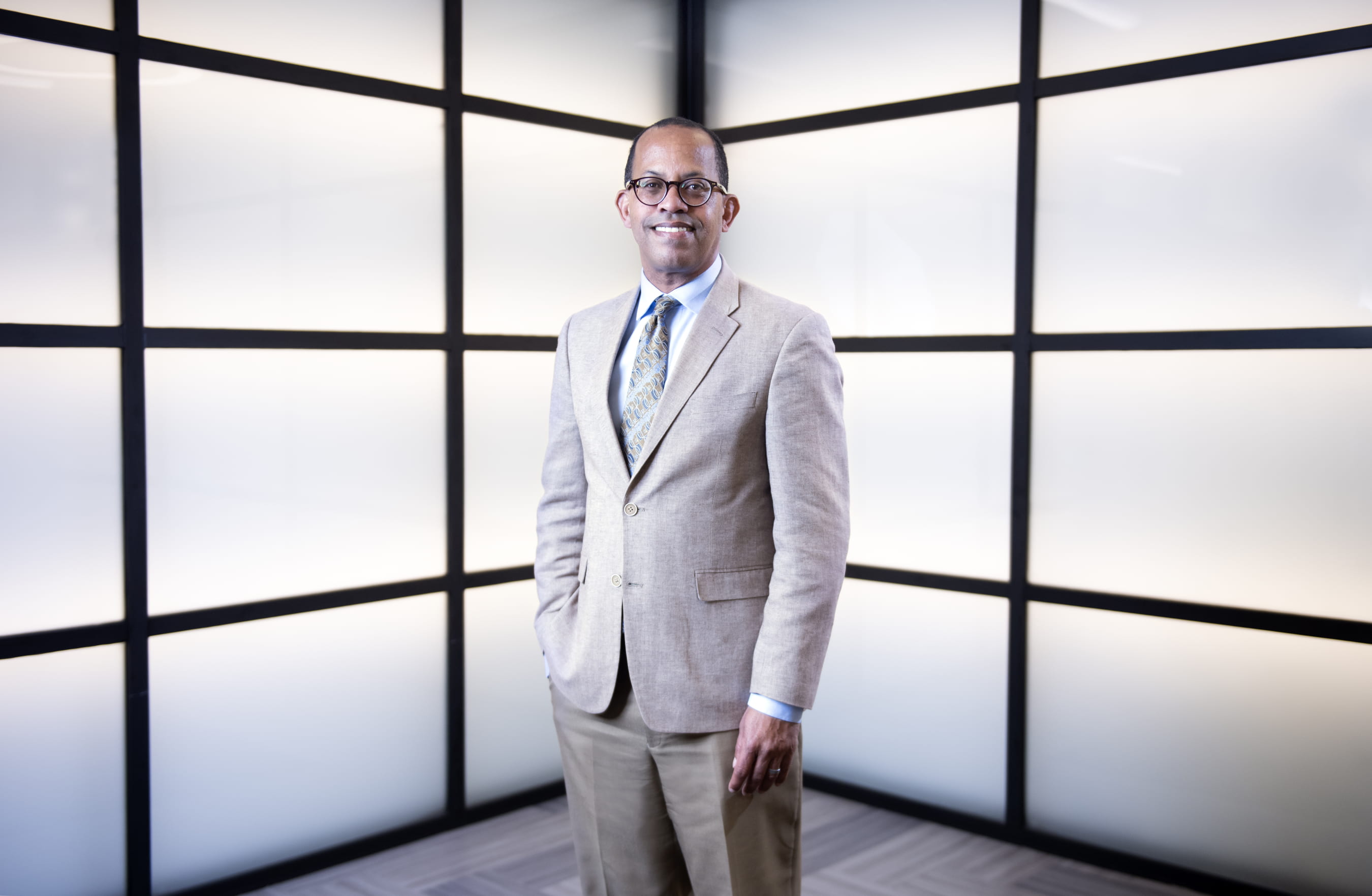A guest lecturer with gravitas
Chancellor Howard Gillman, an expert on free speech, addresses literary journalism class studying it

The theme of Amy DePaul’s “Reporting for Literary Journalism” course this fall is free speech, so who better to guest lecture than the man who wrote the book on the subject?
It helps that he works at UCI too. Chancellor Howard Gillman is a leading scholar on First Amendment issues, co-author of Free Speech on Campus and co-chair of the advisory board for the UC National Center for Free Speech and Civic Engagement. He regularly speaks and writes on the subject, and he took time Oct. 16 to address a class of eager writing students.
Gillman started with a half-hour presentation touching on the historical significance of free speech. “Everything that you think is true about the natural world, about the nature of life, about a just society – everything that you believe to be true – was not too long ago considered a dangerous, heretical challenge to the sacred beliefs of established authorities,” he said, adding that it’s only through dissenting voices, divergent viewpoints, free speech no matter the cost that knowledge evolves.
He asserted that universities are in the business of assessing ideas. What used to be institutions of indoctrination now promote critical thinking, he said, and students and faculty have a responsibility to evaluate the merits of ideas and explain why some are better than others – and why some have no validity at all.
Gillman dedicated the remainder of the 90-minute class to answering questions. Even so, the spirited exchange ran 20 minutes over. Topics ranged from Twitter censorship to the costs of inviting controversial speakers to campus and the definition of hate speech, all of which the chancellor addressed extensively.
“Do you think it’s possible to have a university where students can feel safe and where free speech is allowed?” asked one class member.
Gillman said it was necessary that everyone be willing to hear and debate ideas that make them uncomfortable, in the same way that medical and law students have to endure difficult situations to prepare themselves to help others.
“We have hard work to do to understand and save the world,” he noted. “Someone has to do it, and it’s a sacred privilege to be in a position where you get to shoulder that burden.”
Literary journalism junior Audrey Kemp was pleased with the discussion. “I came in with a lot of preconceived notions and questions that I expected to ask, but he ended up not only answering them but changing my perspective before I could even ask them,” she said. “So it was very illuminating and challenging.”



